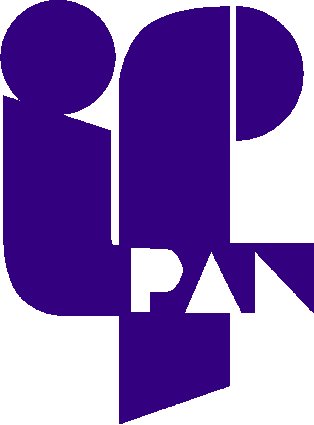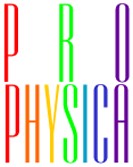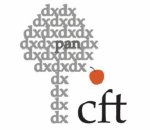A very big thank you to all participants for making FINESS 2015 a success.
You are all cordially invited to FINESS 2017!
Piotr, 19.9.2015
FINESS 2015
Over the last decade, finite temperature and out of equilibrium dynamics have become accessible in a controlled way in ultracold quantum gases, and more recently are also becoming relevant to other ultracold systems such as polaritons and other open systems. This offers new exciting insights into the dynamics of many-body quantum systems, and promises new connections to systems in topics as diverse as solid-state, high-energy physics, and cosmology.
The FINESS cycle of meetings has been bringing together the world experts in the field since 2007. It focuses on the topic from two primary angles:
- Understanding the physics behind the new phenomena seen in superfluids and quantum gases when one leaves equilibrium in the many-body regime.
- Hammering out and comparing numerical methods to accurately simulate the quantum dynamics of such systems. ... a task that is still far from complete.
| A fruit of the meetings is the book Quantum Gases: Finite Temperature and Non-Equilibrium Dynamics that summarizes a common viewpoint that emerged from our discussions, and presents the physics and simulation methods used in the field in a unified formalism. |
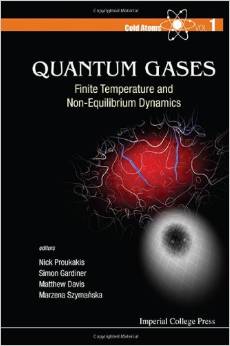
|
The meetings have been held bi-annually, travelling between world centres of research into this field. It started with the smaller scale workshop in Sandbjerg, Denmark (2007), through a series of successful meetings in Durham, UK (2009), Heidelberg, Germany (2011), and Queenstown, New Zealand (2013). This time we are back in the Northern Hemisphere, and will
bring together the international experts in this area again in Sopot, Poland from 14-18 September 2015.
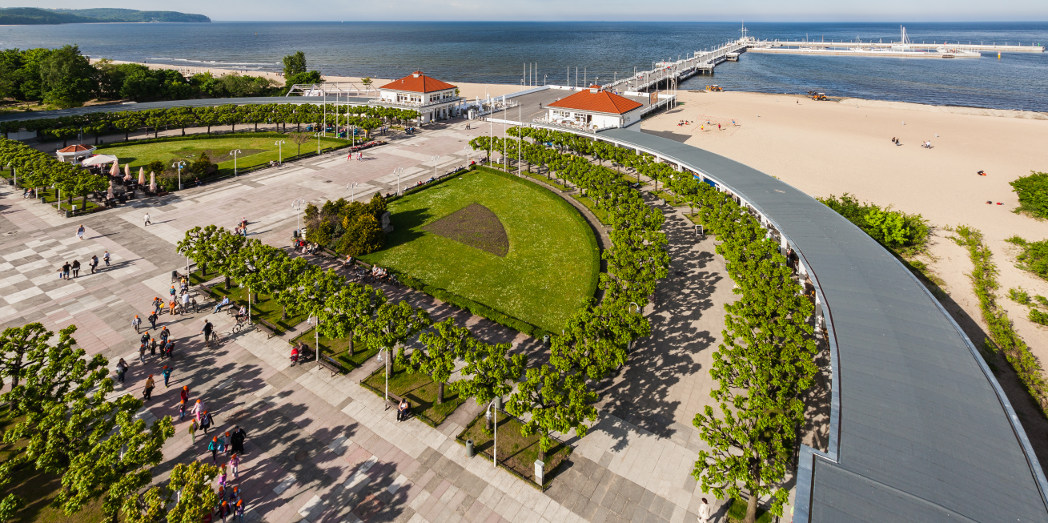
| Diego Delso, Wikimedia Commons, License CC-BY-SA 3.0 |
- The dynamics of superfluids and strongly interacting gases at
finite temperature and out of thermal equilibrium, including such systems as
- Ultracold interacting Bose and Fermi gases
- Optical lattice and strongly interacting systems
- Polariton condensates and related open systems
- Spinor quantum gases
- Thermalisation and prethermalisation
- Defect formation (vortex, soliton, solitonic vortex, ...) and the Kibble-Zurek mechanism
- Non-thermal fixed points and highly excited metastable states
- Quantum turbulence
- Quantum quenches and phase transitions of interacting systems
- Quantum transport and hydrodynamics in strongly interacting systems
- Open quantum systems and dissipative dynamics
- As previously, an important focus will be to review and compare the broad range of methods for tackling these questions, and discuss progress in their development and benchmarking. These include:
- Monte-Carlo methods for quantum dynamics
- The broad class of c-field methods, such as
- classical fields theory
- Stochastic Gross-Pitaevskii equation (SGPE)
- Truncated Wigner representation
- Extended Gross-Pitaevskii approaches for polariton fields
- Phase-space methods such as positive-P and number-phase representations
- Multi-configuration time-dependent methods such as MCTDHF
- Kinetic equations
- Gutzwiller and related approaches for lattice systems
- Dynamical mean-field theory
- Methods for open systems such as master equations
- Exact solutions
- Like at the previous meeting in Queenstown, we will include a significant number of participants from experimental research from a number of fields to facilitate direct interaction between experimental and theoretical research in out-of-equilibrium systems.
List of speakers:
- Vanderlei Bagnato (Universidade de São Paulo, Brazil)
- Thomas Billam (Durham University, UK)
- Blair Blakie (University of Otago, New Zealand)
- Iacopo Carusotto (Università di Trento, Italy)
- Cheng Chin (University of Chicago, USA)
- Andrew Daley (University of Strachclyde, UK)
- Bogdan Damski (Jagiellonian University, Poland)
- Jacek Dziarmaga (Jagiellonian University, Poland)
- Matthew Davis (University of Queensland, Australia)
- Gabriele Ferrari (University of Trento, Italy)
- Simon Fölling (Max-Planck-Institut für Quantenoptik, Germany)
- Simon Gardiner (University of Durham, UK)
- Thomas Gasenzer (Heidelberg University, Germany)
- Walter Hofstetter (Goethe University Frankfurt, Germany)
- Corinna Kollath (Universität Bonn, Germany)
- Michał Matuszewski (IFPAN, Polish Academy of Sciences, Poland)
- Nadine Meyer (University of Birmingham, UK)
- Cord Mueller (Insitut Non Lineaire de Nice, France)
- Nir Navon (University of Cambridge, UK)
- Herwig Ott (University of Kaiserslautern, Germany)
- Barbara Piętka (University of Warsaw, Poland)
- Nikolaos Proukakis (University of Newcastle, UK)
- Ivan Pshenichnyuk (Skoltech, Russia)
- Giacomo Roati (University of Florence, Italy)
- Kazimierz Rzążewski (CFT PAN, Polish Academy of Sciences, Poland)
- Laurent Sanchez-Palencia (Institut d'Optique, France)
- Hayder Salman (University of East Anglia, UK)
- Luis Santos (University of Hannover, Germany)
- Peter Schmelcher (University of Hamburg, Germany)
- Thomas Schweigler (TU Wien, Austria)
- Alice Sinatra (ENS, France)
- David Snoke (University of Pittsburgh, USA)
- Marzena Szymańska (University College London, UK)
- Kali Wilson (Heriot-Watt University, UK)
- Shannon Whitlock (University of Heidelberg, Germany)
- Emilia Witkowska (IFPAN, Polish Academy of Sciences, Poland)
- Michiel Wouters (Universiteit Antwerpen, Belgium)
- Tarik Yefsah (Max-Planck-Institut für Quantenoptik, Germany)
- Wojciech Żurek (Los Alamos National Laboratory, USA)
Program Committee
|
Organisers
Contact |
